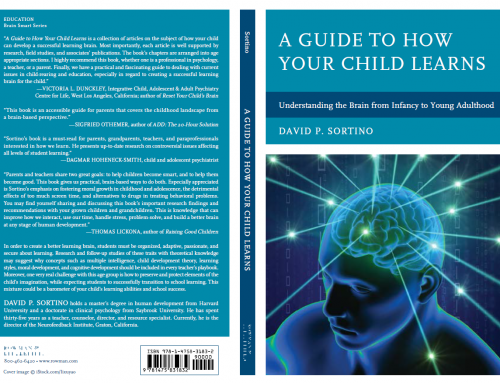Achievement is said to begin when the brain’s thalamus, located in the limbic system, interprets the experience or information as positive or negative. If the perception of achievement is negative, it is sent directly to the amygdala and the child responds with a fight or flight response. However, if the experience of attempted achievement is positive, the event is sent to the hippocampus, seat of emotional relationships and then to the higher brain, the cerebral cortex.
There are four main areas of underachieving personalities: the Distant, the Passive, the Independent and the Defiant. The Distant is the most difficult to correct because it is associated with a lack of early nurturing or abandonment issues (multiple moves, adoption, death of a loved one, traumatic illnesses etc.) which keeps them in a flight or fight mode when it comes to the child’s relationship to achievement. In other words, the Distant’s trust has been broken and they will go to all extremes to avoid emotional failure, making themselves distant to any and all achievement challenges. As a result, they seek immediate gratification and do not understand the concept of sacrificing now to meet future goals (Spevak, P., 2006).
The Passive underachiever is stuck at a higher level developmentally than the distant underachiever but is typically passive aggressive when it comes to achievement. That is, his need for approval is so demanding that a sense of anxiety overcomes his rational thinking brain and produces unbalanced responses, erratic work, poor test taking and underachievement. Because the Passive underachiever is often well liked, parents and teachers actually feed into his passivity by helping him, assuming he will eventually turn his underachievement around? Passives often take the position that it is better to not try and fail, rather than to try and be either successful or not. In short, they are stuck in no man’s land, traumatized by their fear they will lose the approval of others if they fail.
The Dependent underachiever fails to develop a sense of independence toward achievement. He fails to prioritize and understand that he needs some sense of personal interest and skill for true achievement. Therefore, the Passive underachiever often focuses on activities that have little long-term value while ignoring valuable personal experience necessary for achievement. He starts and stops, never truly focusing on details, which causes him to miss the big picture. As a result, he is constantly ill equipped to achieve independently, feeling like a little child being thrown into a pool before being taught how to swim.
The Defiant is so fearful about failure and losing support that he is constantly in the fight or flight mode, which is the crux of his oppositional behavior. As a result, no matter what position the person in authority takes, the Defiant underachiever will somehow create disharmony in the environment. Concealed beneath the rebellious exterior lies a fear of failure and of personal inadequacy (Spevak, P., 2006). To avoid failure, the Defiant underachiever will fall into a blaming mode toward authority figures as the basis for their lack of achievement.
Beyond the obvious need for adults to assume a low-key consistent communicative approach, all four types must have their true intelligence connected to achievement. In other words, what better way for underachieving children to form a positive relationship with achievement but to define their true intelligence and learning potential? Therefore, I advocate such children should be given a multiple intelligence assessment to determine what their specific multiple intelligence and learning interests really are.
A second strategy is to create a contract. Underachievers need predictability and consistency, particularly with rules. For example, rules create boundaries, which allow the Distant to trust; the passive to not wiggle out of responsibility; the dependent, to sense empowerment; the defiant, to help set his own rules.
The bottom line is that underachievement can be a lifelong debilitating disorder and parents, like their child, should never underachieve in seeking help, alternatives, and information. Dr. Sortino can be reached at davidsortino@comcast.net or at his blog: Awakening Every Child’s Genius – Dr. David Sortino


